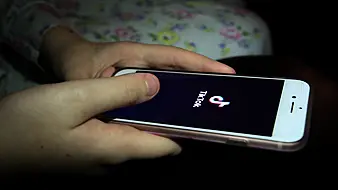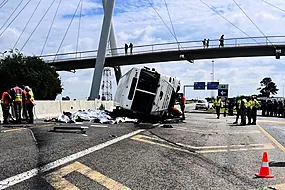The Biden administration has released a close ally of Venezuelan president Nicolas Maduro in a swap for jailed Americans, it is understood.
Alex Saab, who was arrested on a US warrant for money laundering in 2020, is said to have been released from custody on Wednesday.
In exchange, Mr Maduro will free some, if not all, of the at least 10 US citizens who remain imprisoned in Venezuela, sources told the Associated Press.
The White House has declined to comment.
On Friday and again on Monday, papers were filed under seal in the long-dormant criminal case out of federal court in Miami, an indication that a behind-the-scenes deal is in the works.
The US has long accused Saab of being a bag man for Mr Maduro. Saab’s release would be seen as a major concession to Mr Maduro, an authoritarian leader who is himself the target of a $15 million for anyone bringing him to New York to face drug trafficking charges.
The deal is also likely to anger the Venezuelan opposition, who have of late criticised the White House for standing by as the leader of the Opec nation has repeatedly outmanoeuvred the US government after the Trump administration’s pressure campaign failed to topple him.
In October, the White House eased sanctions on Venezuela’s oil industry, promising to reimpose the restrictions if Mr Maduro by November 30 did not live up to his promise to pave the way for free and fair elections next year.
That deadline passed and so far, Mr Maduro has failed to reverse a ban blocking his chief opponent, Maria Corina Machado, from running for office.
Among the Americans behind bars in Venezuela are two former Green Berets, Luke Denman and Airan Berry, who were involved in an attempt to oust Mr Maduro in 2019.
Also detained are Eyvin Hernandez, Jerrel Kenemore and Joseph Cristella, who are accused of entering the country illegally from Colombia. More recently, Venezuela arrested Savoi Wright, a 38-year-old California businessman.
Saab, 51, was pulled off a private jet during a fuel stop in Cape Verde en route to Iran, where he was sent to negotiate oil deals on behalf of Mr Maduro’s government.
He was charged with conspiracy to commit money laundering tied to a bribery scheme that allegedly siphoned off $350 million through state contracts to build affordable housing for Venezuela’s government.
Mr Maduro’s government has insisted Saab was traveling to Iran to buy food and medical supplies when he was detained in Cape Verde.
Saab was previously sanctioned by the US Treasury Department for allegedly running a scheme that included Mr Maduro’s inner circle and stole hundreds of millions of dollars from food-import contracts at a time of widespread hunger mainly due to shortages in the South American country.
A decade into the crisis, shops are now fully stocked, but few can afford food. The monthly minimum wage is about $3.60, just enough to buy a gallon of water.
The Trump administration held out Saab as a trophy, spending millions of dollars pursuing the Colombian-born businessman. At one point, it even deployed a Navy warship to the coast of West Africa to warn the Venezuelans.
Mr Maduro’s government has argued that Saab is a Venezuelan diplomat, entitled to immunity from criminal prosecution under international law.
But his defence lawyers said last year in a closed-door hearing that before his arrest, Saab had been secretly talking to the US Drug Enforcement Administration, helping authorities untangle corruption in Mr Maduro’s inner circle and agreeing to forfeit millions of dollars in illegal proceeds from corrupt state contracts.
The deal is the latest concession by the Biden administration in the name of bringing home Americans jailed overseas.
The most notable prisoner exchange came last December when the US government, over the objections of some Republicans in US congress and criticism from some law enforcement officials, traded Russian arms dealer Viktor Bout for WNBA star Brittney Griner.
The succession of swaps has raised concerns that the US is incentivising hostage-taking abroad and producing a false equivalence between Americans who are wrongfully detained abroad and foreigners who have been properly prosecuted and convicted in US courts.
Biden administration officials say securing the freedom of wrongfully detained Americans and hostages abroad is a core government priority that requires difficult deal-making.







